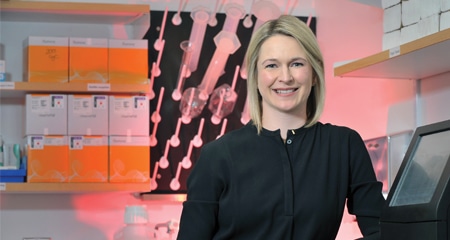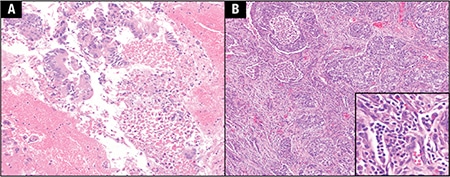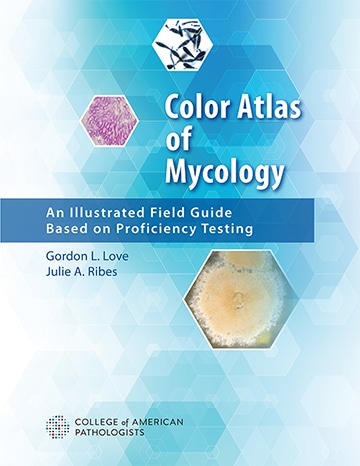November 2018—Like a piece of so-called sticky music, cutoff numbers can persist in physicians’ minds outside of any real clinical value and, in the process, leave their laboratory colleagues mildly befuddled (not to mention searching for more useful cutoffs). Such a jingle is creeping into tumor mutational burden. Lauren Ritterhouse, MD, PhD.
Read More »November 2018
New momentum for harmonizing lab results
November 2018—In The Music Man, the four members of the local school board, notorious for their squabbling, are assigned to investigate the credentials of “professor” Harold Hill, a charming con man who has come to town to sell band uniforms and instruments.
Read More »Biotin interference: answering questions, reducing the risk
November 2018—Biotin use is not rare, and don’t count on it being listed in the patient’s electronic medical record. Those are some of the findings of a Mayo Clinic study published recently in Clinical Biochemistry.
Read More »Component IgE testing offers food for thought
November 2018—Food component testing offers improved specificity for distinguishing IgE sensitized from truly allergic patients, and the menu for allergen components may soon expand.
Read More »AMP case report: Detection of concurrent hematologic malignancies in solid tumor NGS testing may cause false-positive results
November 2018—CAP TODAY and the Association for Molecular Pathology have teamed up to bring molecular case reports to CAP TODAY readers. AMP members write the reports using clinical cases from their own practices that show molecular testing’s important role in diagnosis, prognosis, and treatment. The following report comes from Weill Cornell Medicine.
Read More »Inside the Color Atlas of Mycology: Candida famata
November 2018—Color Atlas of Mycology: An Illustrated Field Guide Based on Proficiency Testing is a new book from CAP Press, released in October. It is designed to help in identifying fungi using the most recent taxonomic classifications. In it is more than 15 years of proficiency testing data to highlight diagnostic clusters of incorrect identifications and address conceptual classification issues. Following is an excerpt from the section on yeast.
Read More »Laboratory information system vendors on where their focus is
November 2018—CAP TODAY’s lineup of laboratory information systems begins on page 41. Here, six of the 30 companies that have LISs listed in the guide tell us what you, our readers, want from your LIS and what they want you to know about them.
Read More »Hematology roundtable: rules, reference ranges, POC testing
November 2018—Reference intervals, point-of-care testing, the use of rules for efficiency, and the display of results in patient records. That and more is what a panel of experts weighed in on when CAP TODAY publisher Bob McGonnagle assembled them in September to talk about hematology instrumentation. What they told us follows.
Read More »On Roche m 511 analyzer, ‘everything is done from the slide’
November 2018—Roche Diagnostics will soon launch its m 511 analyzer for hematology laboratories. Krista Curcio, Roche technical marketing manager, hematology, told us, in a recent conversation with CAP TODAY publisher Bob McGonnagle, how and why the new instrument is different. “We’re turning it upside down and going a different way,” she said of the m 511. Here is more on the instrument Roche will launch before year’s end.
Read More »Put It on the Board
Quest acquires PhenoPath
November 2018—Quest Diagnostics has acquired PhenoPath Laboratories, which provides immunophenotyping, hematopathology, and molecular pathology services. The PhenoPath business, in Seattle, will operate as part of AmeriPath, a wholly owned business of Quest. Steve Rusckowski, Quest chairman, president, and CEO, said in a statement: “PhenoPath has a strong record of innovation and provides several capabilities that complement and extend our own, particularly in pathology and molecular oncology. It also deepens our presence in the Pacific Northwest.” PhenoPath founder Allen Gown, MD, tells CAP TODAY that continued consolidation in the laboratory industry and insurance reimbursement challenges have posed significant risks to PhenoPath’s future growth. “In Quest/AmeriPath,” he says, “we found an organization that realized not only the excellence of PhenoPath’s past and present but also the extraordinary future that, with their assistance, we can have.” Dr. Gown founded PhenoPath in 1998.
Q&A column
Q. Is anticoagulant adjustment in citrate tubes necessary when a patient’s hematocrit is less than 20 percent? Read answer. Q. What is the substitute test for HbA1c for a patient with homozygous variant hemoglobin? Is a fructosamine and/or glycated albumin test appropriate? Read answer.
Read More »Newsbytes
How Henry Ford core lab uses bottom-up communication November 2018—When Henry Ford Health System started planning its core laboratory’s automation line four years ago, aware that it needed to take Lean to the next level, it enlisted frontline laboratory employees in a development process that used the strategies of Hoshin Kanri and kaizen. Read more.
Read More »From the President’s Desk: Advocacy—Whose job is it anyway?
November 2018—Last month, we talked about how the CAP Laboratory Accreditation Program employs mentorship and perspective to move our specialty forward. I’d like to talk this month about how we apply those tools in our advocacy program.
Read More »Clinical pathology selected abstracts
Preparing for passage of regulatory requirements for laboratory-developed tests: November 2018—The FDA has raised concerns, in recent years, about several high-risk laboratory-developed tests (LDTs), including a concern that patients may undergo unnecessary treatment or delay or forego treatment due to the inaccuracy of such tests. Other agencies have also challenged the validity, accuracy, oversight, and safety of LDTs, a subset of IVDs that are intended for clinical use and designed, manufactured, and used within a single laboratory.
Read More »Anatomic pathology selected abstracts
November 2018—HER2: a pan-cancer event highly enriched in AR-driven breast tumors: Approximately one in five breast cancers is driven by amplification and overexpression of the HER2 receptor kinase, and HER2 enriched is one of four major transcriptional subtypes of breast cancer. The authors conducted a study to understand the genomics of HER2 amplification independent of subtype, as well as the underlying drivers and biology of HER2-enriched (HER2E) tumors.
Read More »Molecular pathology selected abstracts
November 2018—Common genetic variants contribute to risk of rare severe neurodevelopmental disorders: The traditional paradigm broadly classifies genetic diseases into rare disorders caused by a single gene variant and common disorders caused by complex interplay among multiple genes. However, recent research has shown that penetrance and disease phenotype, even in disorders thought to be monogenic, are affected by common genetic variation.
Read More »Letters: Ph-like ALL
November 2018—In the October issue of CAP TODAY, Karen Titus shared with us a story titled, “Fresh incentive to look for Ph-like ALL.” She spoke with key players in the discovery of BCR-ABL1-like B-lymphoblastic leukemia/lymphoma (B-ALL) (or “Ph-like” ALL), which is now a provisional entity in the 2016 revised fourth edition of the WHO. A key takeaway from the article ...
Read More »AMP case report: October 2018 test yourself answers
In the October 2018 issue was a case report (page 70), “NGS in the diagnosis of RASopathies in histologically uninformative skin biopsy samples,” written by members of the Association for Molecular Pathology. Here are answers (in bold) to the three “test yourself ” questions that followed that case report. 1. Which of the following is the most commonly mutated gene in ...
Read More » CAP TODAY Pathology/Laboratory Medicine/Laboratory Management
CAP TODAY Pathology/Laboratory Medicine/Laboratory Management







